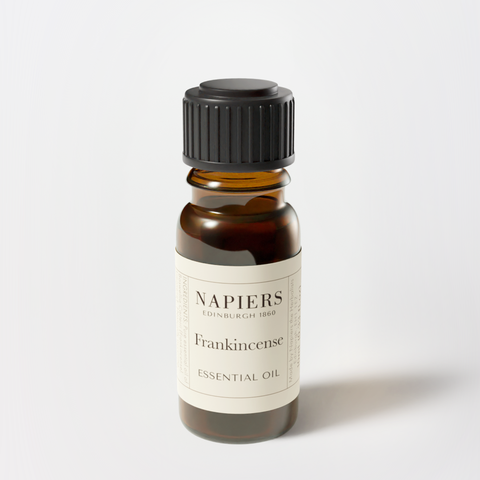Anxiety is a common mental health condition that affects millions of people worldwide. It can manifest in various ways, including excessive worry, fear, restlessness, and even physical symptoms such as a racing heart or sweating. Managing anxiety and its symptoms is crucial for maintaining overall well-being and quality of life. In recent years, essential oils have gained popularity as a natural approach to coping with anxiety and stress.
We're here to answer some frequently asked questions relating to anxiety, stress, and essential oils
What is anxiety?
Anxiety is a normal human response to stress or danger. It can help us stay alert and focused in threatening situations. However, for some people, anxiety can become chronic and excessive, leading to persistent worry and fear even in non-threatening situations. Anxiety disorders, such as generalized anxiety disorder (GAD), social anxiety disorder, and panic disorder, are characterized by excessive and persistent anxiety that can interfere with daily life.
What are the symptoms of anxiety?
The symptoms of anxiety can vary from person to person and may include:
- Excessive worry or fear
- Muscle tension
- Sleep disturbances, such as trouble falling asleep or staying asleep
- Racing heart or palpitations
- Sweating
- Shortness of breath
- Nausea or upset stomach
Anxiety symptoms can range from mild to severe and may significantly impact a person's mental and physical well-being. Seeking professional help from a qualified healthcare provider is recommended for proper diagnosis and treatment.
What are essential oils?
Essential oils are highly concentrated plant extracts that capture the natural aroma and beneficial properties of plants.
They are typically extracted through distillation or cold-pressing methods from various parts of plants, such as leaves, flowers, stems, and roots.
Essential oils have been used for centuries for their medicinal and therapeutic properties and are commonly used in aromatherapy, which is the practice of using essential oils for their therapeutic benefits.
How do essential oils work for anxiety?
Essential oils can help alleviate anxiety symptoms through their aromatherapeutic effects.
When inhaled, the aroma of essential oils can stimulate the olfactory system, which is linked to the emotional center of the brain, including the amygdala and the limbic system. These areas of the brain are responsible for regulating emotions, including anxiety and stress. The aroma of essential oils can help calm the mind, reduce stress, and promote relaxation, which can be beneficial in managing anxiety.
What are the essential oils commonly used for anxiety?
Several essential oils have been found to be effective in managing anxiety. Here are some commonly used essential oils for anxiety:
Lavender oil: Lavender oil is well-known for its calming properties and is often used to reduce anxiety and promote relaxation. It can help calm the mind, improve sleep quality, and reduce symptoms of anxiety.
Bergamot oil: Bergamot oil has a citrusy scent and is known for its uplifting and mood-enhancing properties. It can help reduce stress, anxiety, and depression, and promote a sense of well-being.
Ylang ylang oil: Ylang ylang oil has a floral and sweet aroma and is known for its calming and antidepressant properties. It can help reduce anxiety, improve mood, and promote relaxation.
Frankincense oil: Frankincense oil has a woody and earthy scent and is known for its grounding and calming effects on anxiety. It can help reduce symptoms of anxiety, such as racing thoughts and restlessness, and promote a sense of tranquillity.
Patchouli oil: Patchouli oil has a musky and sweet aroma and is known for its soothing and sedative effects. It can help reduce anxiety, promote relaxation, and improve sleep quality.
How to use essential oils for anxiety?
There are several ways to use essential oils for anxiety. Here are some common methods:
Diffusion: Add a few drops of essential oil to a diffuser or a bowl of hot water and inhale the aroma. Diffusing essential oils can create a calming atmosphere, promote relaxation, and reduce anxiety.
Inhalation: Add a few drops of essential oil to a tissue or a cotton ball and inhale deeply. This can be done whenever you feel anxious or stressed, and it can help calm the mind and reduce anxiety symptoms.
Bathing: Add a few drops of essential oil to a warm bath and soak for 15-20 minutes. This can help relax the body and mind, reduce stress, and alleviate anxiety symptoms.
Massage: Mix a few drops of essential oil with a carrier oil and use it for a calming massage. Massage can help relax the muscles, release tension, and promote relaxation. For more information on creating massage oils, tap here. We also have a number of preblended massage oils to make things easier. Tap here to shop.
Topical application: Dilute a few drops of essential oil with a carrier oil, such as almond oil or jojoba oil, and apply it to your skin. Essential oils can be applied to pulse points, such as the wrists, temples, or behind the ears. Always perform a patch test before applying essential oils to your skin to check for any allergic reactions.
It's important to note that essential oils are potent and should be used with caution. Always follow the recommended guidelines for dilution and usage, and consult a qualified aromatherapist or healthcare provider if you have any health conditions or concerns.
Anxiety is a common mental health condition that can significantly impact a person's well-being. Essential oils can be a helpful addition to a holistic approach in managing anxiety, but should not replace professional medical advice or treatment. If you are experiencing symptoms of anxiety, it's crucial to seek support from a qualified healthcare provider for proper diagnosis and treatment.
Recommended for getting started:
 |
||||
| Napiers Frankincense Essential Oil | Napiers Lavender Essential Oil | Napiers Bergamot Essential Oil |
 |
||||
| Napiers Ylang Ylang Essential Oil | Napiers Patchouli Essential Oil | Napiers Relaxing Essential Oil Blend |







